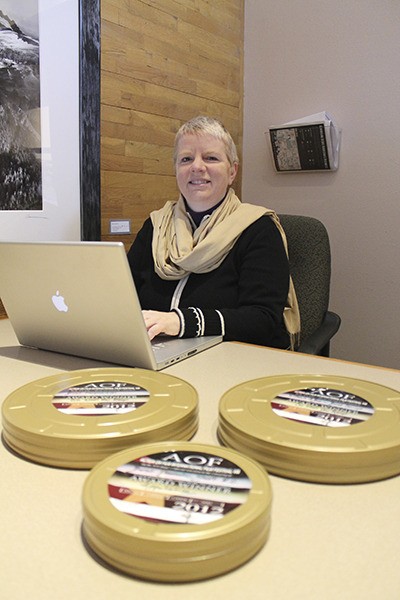When islander Jessika Satori decided to switch career paths and become a filmmaker in her mid-40s, one of the first things she did was enroll in a class taught by Seattle legend Stewart Stern, a two-time Oscar nominee and Emmy Award-winning screenwriter.
Stern soon took notice of his eager new — but not so young — student, singling her out for special tutelage and a chance to work one-on-one with him. When she asked, he told her why he’d done that.
“You were hungry to learn,” Stern said to Satori. “You tried so hard. You raised your hand to ask questions. And you sat in the front row.”
For Satori, sitting in the front row is something of a metaphor — a way of explaining her approach to her life in general, and her most recent profession in particular.
Since launching herself into the world of film in 2008, Satori has made eight short films, wearing multiple hats as a screenwriter, director and producer. Her most recent, a Western inspired by a true story told by her grandmother, is called “All That We See or Seem.”
The film, edited by islander James Culbertson, picked up several nominations and awards at the Action on Film International Film Festival in Monrovia, Calif., including the prize for Best Western Film and the Withoutabox-sponsored prize for Best Script.
On Vashon — a place that has been her home base for the past two decades — Satori has also become the ringleader and founder of a group of film professionals who regularly meet to provide inspiration and assistance to each other.
But Satori, a blonde woman with a close-cropped, no nonsense haircut, a gentle voice and face that looks much younger than her years, has also reached beyond her peers on Vashon and Seattle to get a leg up in the competitive world of movie making.
She’s sought out industry heavyweights to help her master her new craft — working connections to receive mentorships from director of photography Dan Kneece and camera operator and cinematographer Ron Vidor, who both have A-list Hollywood credentials.
And in pursuing her new passion, Satori has also drawn on experience she has gained from three different careers she’s pursued through the years.
Born and raised on a fourth-generation family farm in the Palouse region between Pullman, Wash., and Moscow, Idaho, Satori began her professional life in the garment industry, working as a pattern maker for companies including Levi Strauss & Co. and Patagonia after receiving a bachelor’s degree in apparel design.
“From the age of 5, I wanted to be Edith Head,” she said, referring to the famous Hollywood costume designer.
But after almost a decade in the garment business, Satori decided to switch gears and went to work for Microsoft, helping to start the company’s corporate archive. During that time, she also went back to school, earning an MBA in entrepreneurship and a doctorate in educational leadership with an emphasis in business and public administration.
Those degrees launched Satori’s third career — as an educator and writer who reached out to find teaching gigs for herself in Korea, Russia and the United Arab Emirates at the dawn of the globalization boom. She became a sought-after panelist at national and international conferences, speaking on such subjects as leadership, creativity, human relationships and workplace trends. She also wrote a book, “Synchronicty: The Entrepreneur’s Edge,” that explored the importance of “being in the right place at the right time.”
In 2005, Satori found herself in the right place and right frame of mind to start all over again, in a completely different field.
“It’s like that line from ‘Auntie Mame,’” she said. “Life is a banquet, and you have to make a decision about what you want.”
She said she also found lifelong inspiration to begin her new career from her mother, who at the age of 65 went back to school to receive a doctorate in special education.
The coming years for Satori seem full of promise. She’s founded her own production company, Audacious Aperture, a venture that allows her to both make films and continue her work as an educator, offering workshops in such subjects as storytelling, acting and a course called “Directing Your Life” — a primer for students of all ages to create and start crossing items off a bucket list.
What’s next for Satori? She’s currently curating a program of short films by local filmmakers, which will play at the Vashon Film Society’s First Friday Art Film Series on Nov. 1. For the long term, she has also set her sights on making a feature film and finding more commercial projects in Washington state.
And befitting a person who has taken charge of her life and career not once but four times, Satori said her favorite part of becoming a film director is the fact that she is in charge.
“There’s nothing like it,” she said. “Filmmaking is a team sport, and I love leading a group of people and getting people to work together to produce a fine product.”


